JP McMahon – Restaurateur, Chef and Educator
JP McMahon is a chef and owner of Cava Bodega, Aniar and Eat Gastropub. He was behind the recent Food on the Edge conference that brought the world's best chefs to Galway and is Director of Galway Food Festival.
More from...
Tell us about how you got to where you are today
I was born in Dublin; we moved to Maynooth when I was four, so I grew up in Kildare unfortunately. But I always attest that I'm from Dublin, even though some people try to tell me I'm not. I met Drigin in Maynooth - she was in college there. I had gone to France to try to live there; I fancied myself as a kind of bohemian poet, but it didn't work out at all. I had to come back because I had no money. Then we moved to Galway. I was a chef in Fat Freddies for a few years, then we moved to Edinburgh for a year and I cheffed over there as well. When we came back, I went down to Cork - I wanted to study Art History and so I did my degree down there. I always kept cooking and was very into cooking, even at home. I was always doing stuff at home like making my own pasta and just educating myself in that regard.
We moved back to Galway then and I was the head chef in Fat Freddies. In 2008, we got the chance to open up Cava. I was very into the idea of Spanish food and tapas - I thought it wasn't very well represented in Ireland. We had gone to some fantastic Spanish restaurants in London and New York and we wanted to recreate that in Galway. The focus was on using really good Irish produce - working with all the farmers that we still work with - and to produce tapas. That was difficult at the start; people had to get used to understanding what it was like to share something. Irish people aren't very good at sharing anything. After two years, Tom Doorley gave us a review in a national paper and it kind of took off after that. Then Aniar opened in 2011. I like so many different styles of cooking - I'm pretty diverse and at that time, we wanted to do a place that focused on contemporary Irish cooking. Enda (McEvoy) was a good friend of mine; we had been in Cork together, we had been in Galway together. Sheridans on the Docks had closed and I suggested to Enda that we open a place and I suppose the rest is history.
We opened in Eat Gastropub in Massimos the same year and that's something we're still exploring with the farmer project that I'm doing. It's not only about doing food at the level that we do in Aniar, it's trying to get as many people as possible to eat really good food - whether it's a burger or whether it's like something we produce in Aniar. I'm very interested in all the different levels of cooking - that's why we have three very different restaurants. If I was to do another restaurant, it would be very different again, because there's so many more unexplored ideas. I'd love to do a steakhouse and so many other things. Every time I go to London, I think, 'I'd love to do a restaurant like this. I'd love to do a restaurant like that.'
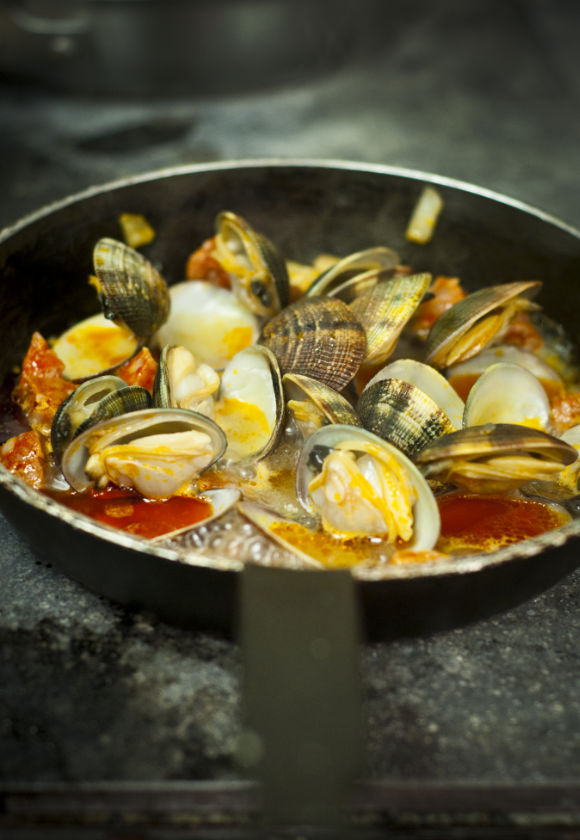
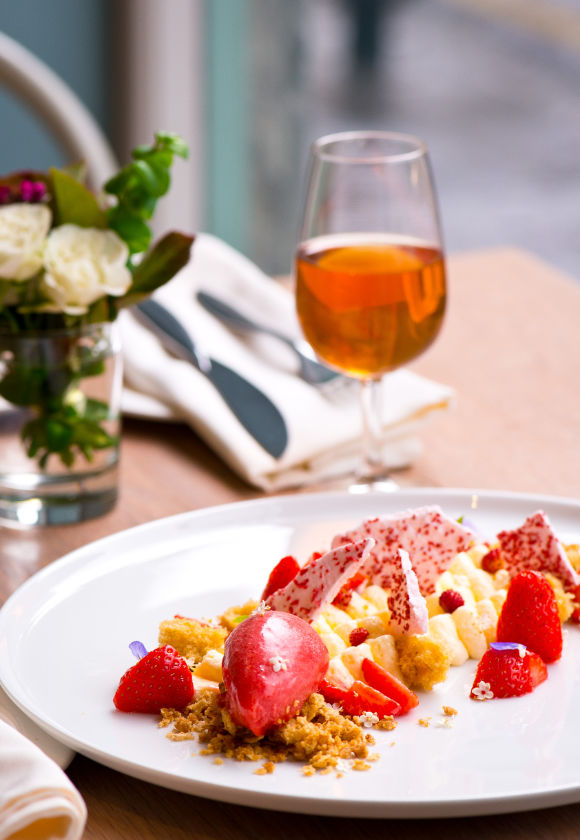
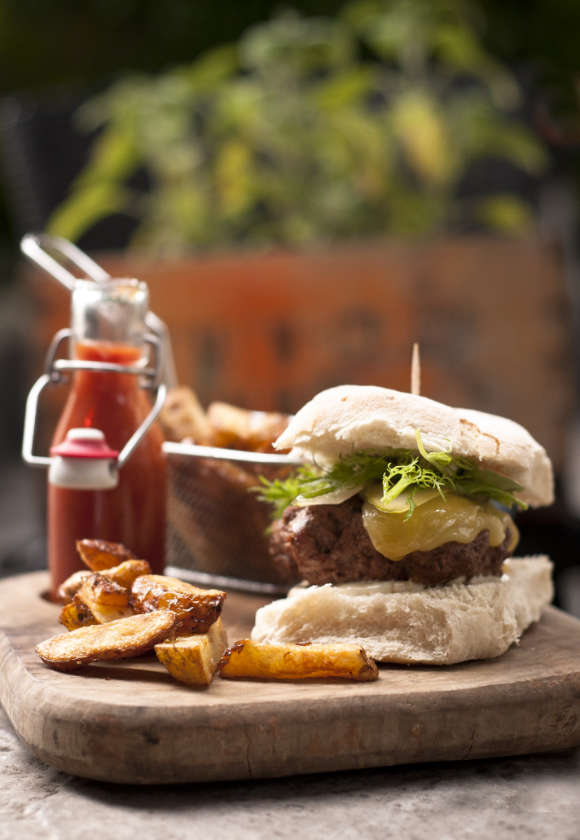
"Food is a wonderful medium to engage with culture and community."
Are you still lecturing in Cork?
Yes, occasionally, I'm still doing my PhD. Some day I'll finish it; i'm nearly ten years at it now, But it's there in the pipeline and I'm typing away at it and when I finish it, I finish it. I have two cookbooks planned for this year - the Eat one in June and Aniar in December. So I'm writing them. I love writing anyway. I've always written. I write poetry, I write fiction, I write plays as well; I just never do anything with them. I always have, ever since I was younger - it was always something I wanted to do and it never happened because it's not something that produces money so it's not something you can make a living out of. I went to college thinking I could do it, but I always kept going back to food. Maybe some day I'll write a novel or a play; I think I'd like that.
What's the drive behind it all?
For me, good food is probably at the forefront. Also it's a community. The three restaurants have the same supplier base; so all the chicken comes from Ronan Byrne (The Friendly Farmer), all of the lamb comes from Castlemine Farm or Collerans (butchers), and I know them all for a long time. If someone comes in and offers us a better price, it doesn't matter; we don't ever change suppliers. I'm very interested in history and culture and for me, food is a wonderful medium to engage with culture and community. If you asked me why I'm doing everything, I probably wouldn't know. I just do it and I think it's the right thing to do. It's the same with Food on the Edge - why did I do it? I don't know. I just thought it'd be a nice thing to do.
Is there ever a stage that you go, 'I've done really well' and pat yourself on the back?
I find it very difficult to appreciate all the stuff we've done. I think it's the Irish psyche. That's not to say I don't think that we have succeeded, but personally, I always think I'm not doing enough and that's what maybe drives me to do more. I do understand when people say to me, 'Food on the Edge' was an international success and you had all these great people here, but then inside, I just think; maybe next year we'll do better. It's a very complex feeling that very, very hard to put your finger on. It's funny, because when the restaurant got the Michelin star, everything went absolutely crazy because it wasn't something we were expecting. The restaurant went from being relatively quiet, us being able to answer the phone, or being able to divert the phone to our own mobiles to having to hire a receptionist because for about a year, it was absolutely just nuts. Enda was here for two years and then Ultan (Cooke) came on board and I kept thinking, sure if we keep it next year, it'll probably make it easier and if we keep it the following year, it will probably make it easier. Now it's been five years and every single year, I think - 'We have to try harder, we have to do more because we're not doing enough'. For me, it's about trying to make things better, and that's why I try to go away or send our own chefs away and that's why I organised Food on the Edge, because it gives you a benchmark. Often what happens in Ireland is that the benchmark for Irish food is set in Ireland, but now, whether it's the internet or whether it's the global forces, the benchmark is international because everyone can see everything so much better. So for me, a restaurant in the West of Ireland has to be as good as a restaurant in London - it can't be; 'Oh, it's just Galway'.
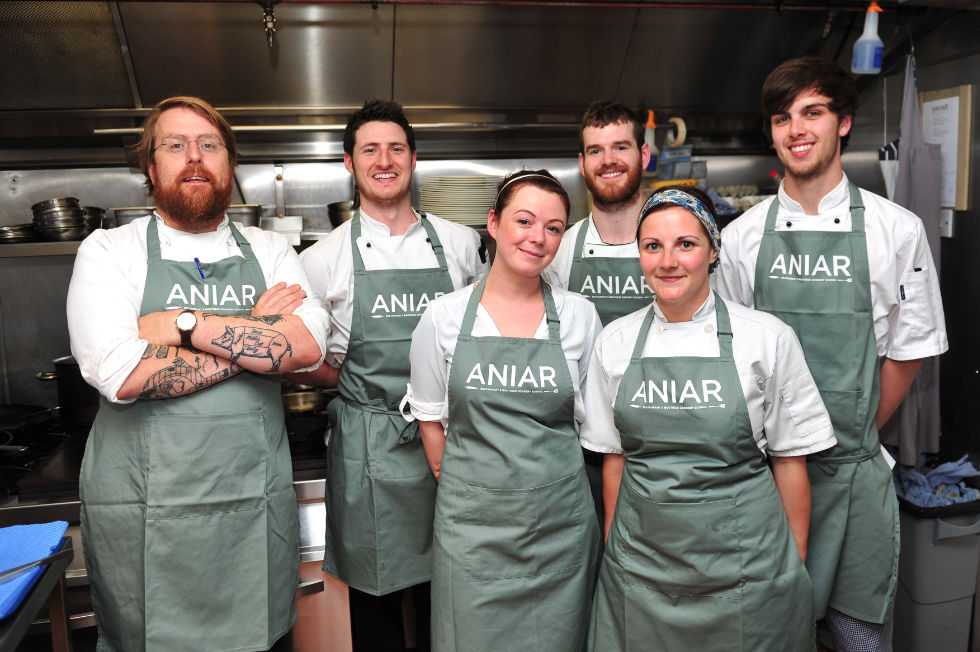
Describe Yourself?
I'm a bit of a megalomaniac, ambitious, a perfectionist in the sense that I'm never really happy with anything. I'm a very driven person, I think in a slightly selfish way, because when I decide I want to do something, I do it - as my wife always finds out.
You have no problem speaking your mind...
I think it ties back into so many things that I do but particularly from having lectured for so long, I know I'm very articulate, so sometimes I find it hard not to say things. Probably there are some things I shouldn't say but I can be very impulsive and rash. Sometimes I don't really think of the consequences of my actions until after I've said it and then with the way the internet is, you put something up as a post and thousands of people have looked at it and all of a sudden everyone knows about it. So dealing with that is something I need to learn better. Then sometimes things annoy me anyway and I'm just going to say it. People are always saying I'm very honest; I just think it's the way things are. No more than telling people that Anair lost €100 grand in the first two years we opened or doing Food on the Edge because I wanted to even though I knew we'd lose money. People need to know these things. Some chefs look at me and think I'm a millionaire and I'm like - I've no money! So I think it's just this perception that I'm doing something and therefore I'm successful. For me, I feel the opposite but every single day you get up and you work and you try. I'm never one to rest of my laurels - ever - I always want to go one step further - always.
Any mentors along the way?
Many of my friends like Enda and Jess (Jess Murphy, Kai), I learned so much from working with those guys. Many of the chefs I idolised that I invited to Food on the Edge - Matt Orlando, Rene Redzepi, Nathan Outlaw, Tom Aikens - that was very strange because then when you meet them, they're just normal people like you or me.
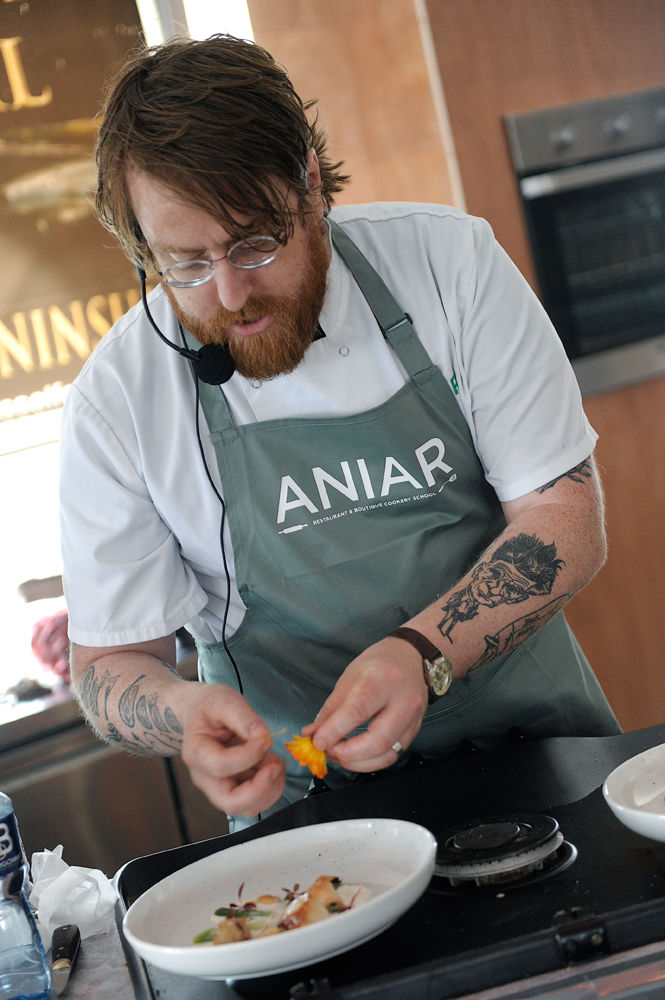
With Food on the Edge, how did it feel bring such an event to Galway?
For me, it felt qutie normal to organise something like that. I think it was always like a pipe dream and then when I started inviting people and saying, 'God, it'd be nice if they'd come', at the time we didn't even have a venue and then it all came together in the end. What it did for Galway was that it really shone an international light on Galway in the sense that all these chefs - most of them would've known where Ireland is but very few of them would have been to Galway before. So they spoke, we did a little tour; we went to Kelly's Oysters, we went to Brady's Abattoir, we went to Ronan's - just to show them a sense of our food culture and they really appreciated what we have. We always undervalue what we have here - we never appreciate it. When I was away and I was in other people's cultures and I saw their offering and how they felt about it, I thought, 'We have these things in Ireland and we never, ever sing our praises about the wonderful oysters we have or the wonderful mussels. Albert Adria, the Spanish chef, he couldn't get over the quality of the seafood and Nathan Outlaw was recently contacting me looking for Kelly's number to buy oysters and sell them in London - small things like that.
"The same thing happened in Copenhagen. It started off with a few chefs and it turned into a whole social phenomenon; I think that's something that we could do."
But it's not just about restaurants and chefs, for them to know that Galway is serious about food and there are so many great restaurants. I think that's really important that people can say, 'Oh, I love Galway - that's a really great place for food'. It's the same way that ten years ago, there was nothing in Copenhagen and now it's one of the food capitals of the world. I hope Galway in ten years time has nine Michelin stars. The same thing happened in Copenhagen. It started off with a few chefs and it turned into a whole social phenomenon; I think that's something that we could do.
You started the Kickstarter project 'Farmer' a few months back. Can you tell us about it?
It was from working a lot with Ronan and Brendan; they're small producers, and they wanted to get their product more to market. They couldn't sell it into any more restaurants, because it's two and a half times more expensive than other products because of its quality - and it's free-range. So we thought about setting up a restaurant together for a couple of years two years- we looked at a few sites in Dublin, but it was always way too much money, like €300,000 for capital. So we decided to do a Kickstarter to generate some interest, and do it as a fast food concept. We didn't raise the money but it garnered a lot of national interest and the wonderful thing is that it didn't cost anything. Now we're going to do a little Farmer pop-up in the Galway Food Festival in March to see how it would work. We need to make a burger, with all of the good things in it, but we need to sell it at a price that you would sell fast food at, so the price of the burger is going to have to be €3 or €3.50, but we need to pack all that goodness in.
You think it's feasible as a business?
I think so; if you look at Daniel Patterson - he spoke at Food on the Edge - he's just opened a fast food place called LocoL that offers really really nutritious food but at the price point of the chain stuff. So it can be done, but our profit margin will be lower. I mean, we sustain Aniar, we sustain Cava and our accountant thinks we're crazy. He's like, 'Why do you spend so much on this product?'. Because for them, a piece of meat a piece of meat and if that one's cheaper, they don't see why you shouldn't go with it. It's a constant education, but for me, I'm always interested in the education element and that's the same whether it's people eating or chefs learning.
Do you think Galway's come a long way with regards to food education since you've opened?
Yeah, I suppose there's myself, Enda, Jess, we all spent time together, we all worked together. Jess and Enda helped us when we opened Cava. It's nice to see that and for me, I think it's only the start of something. There's so many younger chefs now who maybe look at stuff that we've done, and we're like, 'You can do it as well'. If you look at the way that food has gone in the last five or ten years in Galway, it has come on massively.
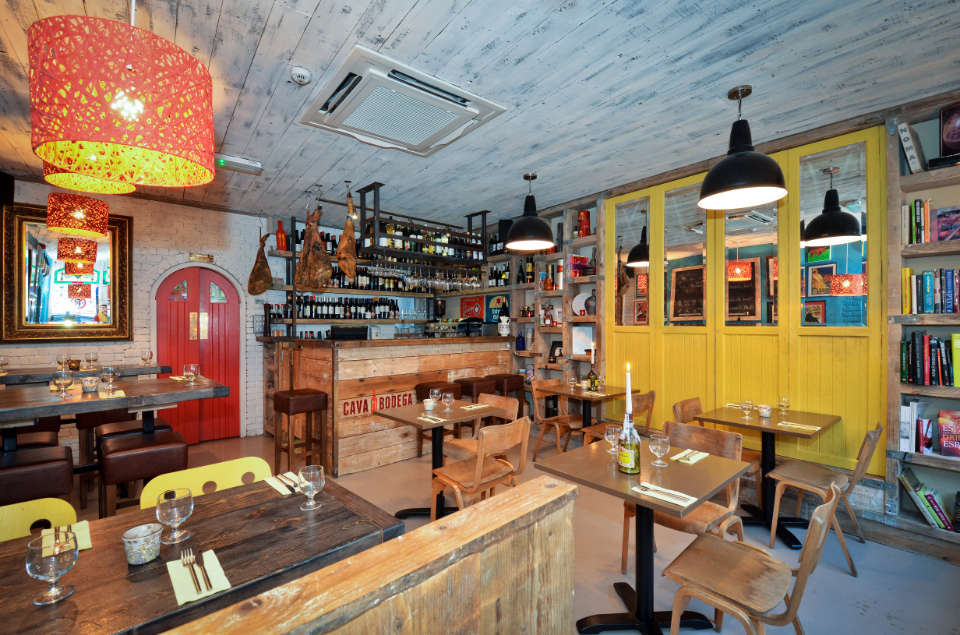
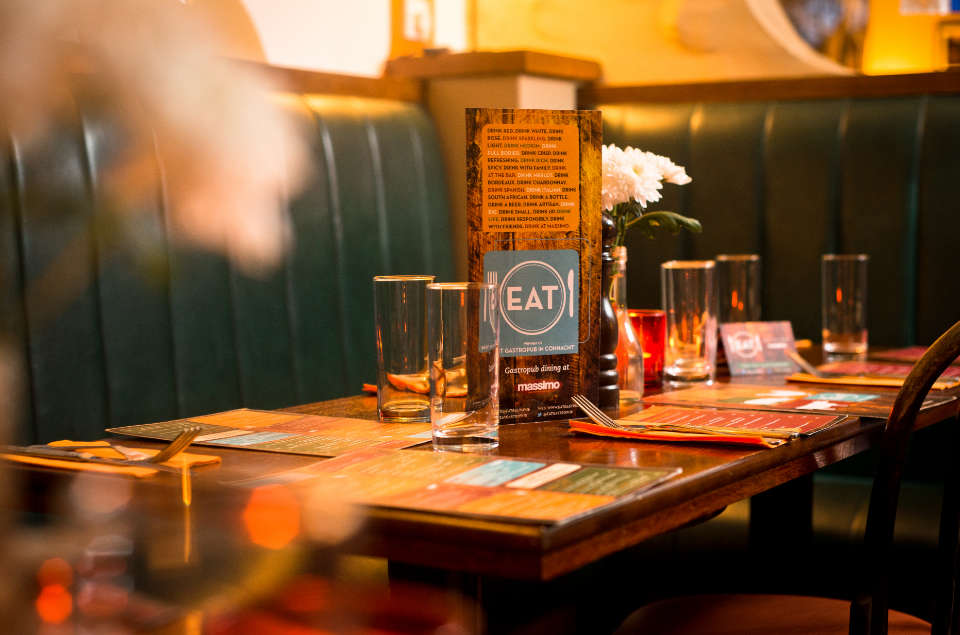
From your perspective, where does food fit within culture?
For me, it's really important. It's as significant as a piece of art of a piece of literature. It's a barometer for culture - how the food is at every level, whether it's getting a cup of coffee and a scone or having lunch. If you have a society that has a really good food offering and it comes from a really good place, I think it gives a really good representation of that society. If you think in terms of food poverty and where there's no education around it, there's a direct correlation between what people eat and their status in society. We need to try and make sure that the good food isn't just for a certain part of society, that it should be for everyone or for as many people as possible - those that want it. It's an ambitious project but it's something that is slowly gathering momentum - there are many, many people, some of whom spoke at Food on the Edge that want to change that. We've gone from people being able to cook for themselves 50 years ago to people not even knowing where an egg comes from because of convenience, you don't even have to know. You don't even have to know where milk comes from - it comes out of a carton. There are examples of that, where if you go to any of the food banks, it's all tinned food - there's no fresh food. There's no food that you have to cook - it's just something you have to reheat. There's a poverty there that needs to change - it's like climbing up a mountain, you have to keep on trying and keep on going at it.
What would you like to see happening with the city in the coming months and years?
I'd love to see the port being built - to see the Docks develop. It would be nice to have less traffic in the city centre. If we had more pedestrianised streets, more one way streets. Even to have the pavements bigger; I think more people would come into town then. I also hope that we'll have more small individual shops, as opposed to the large supermarket where everyone goes once a week and it's outside town. Places like a market, I hope that develops. I hope some day Seamus (Sheridan) will build his market - that would be a wonderful thing. We're generally really good for the arts already - in so many areas we're really, really strong.
For too long, Galway was only about the summer and the tourists. I remember when I was working here first, and we were working on Quay Street, it was only about the tourist season and the winter was just the winter, you accepted it. When we opened Cava, we decided we were going to open it for the local population - the tourists will come anyway. And that's what we've tried to do with all of the restaurants. The more restaurants that focus on the people who are in Galway and let the tourists come when they come, the better it will be for Galway.
- Luke Morgan - Previous
- Next - Gala Tomasso